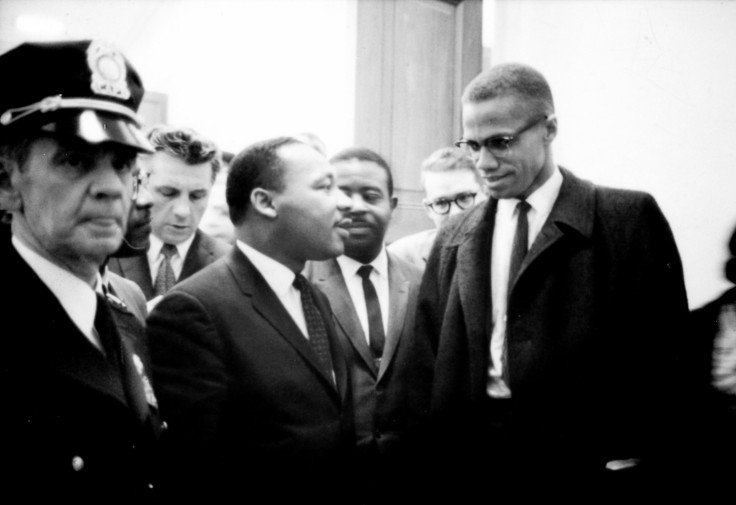Malcolm X Commemoration Live Stream: Descendants of Civil Rights Hero Mark 50 Years Since His Assassination

Few descendants of civil rights icon Malcolm X have been as vocal about his legacy as daughter Ilyasha Shabazz. On Saturday, 50 years since the date of her father’s assassination, Shabazz will join Rev. Al Sharpton for a rally at the National Action Network’s New York City headquarters to mark his death. Her father grew to prominence a a firebrand alternative to the nonviolent, integration-focused message of the contemporary American civil rights movement of the 1950s and 1960s. In the last years before his death, the icon took the name El-Hajj Malik El-Shabazz, renounced his messages of black supremacy and called for racial peace. To watch a live stream of the event, click here.
Shabazz is the only descendant out of Malcolm X’s six daughters announced for Saturday’s event. She was just two years old when, on Feb. 21, 1965, three gunmen rushed the stage where her father was addressing a civil rights group in New York City and shot him at point blank range. Malcolm X, 39, was pronounced dead at a New York hospital. Born on May 19, 1952, he would have turned 90 this year. The family has faced public and private troubles in the decades since the patriarch’s death, of which Shabazz, 52, wrote about in a 2002 memoir titled “Growing Up X.” But a string of tragedies and legal troubles have dominated the headlines about the rest of the family, which has otherwise stayed out of the limelight.
In 1997, Malcolm Shabazz, Ilyasha’s nephew, set fire to the New York City apartment of his grandmother and Malcolm X's widow, Betty Shabazz. The fire caused her death. Tragedy struck the family again in 2013, when Malcolm Shabazz died after an apparent attack in Mexico City. At his funeral, the 28-year-old grandson of the civil rights icon was said to have planned to construct mosques and Muslim schools throughout the country, a tribute to his grandfather's ministry with the Black Muslim group, the Nation of Islam.
Ilyasah Shabazz has been outspoken about civil rights issues in the years since. Last week in Los Angeles, a cameraman posed a question to her about white people using the N-word. “I think it’s just ridiculous sometimes, yes,” she said, the Washington Times reported. But she argued that African-Americans should not use the racial slur, either. “If you don’t like other people using it, then we shouldn’t use it.”
© Copyright IBTimes 2024. All rights reserved.












